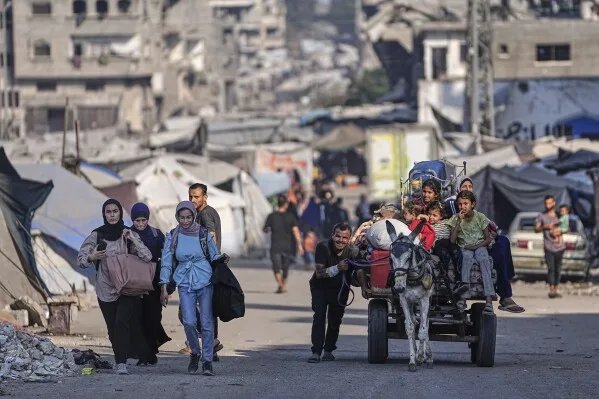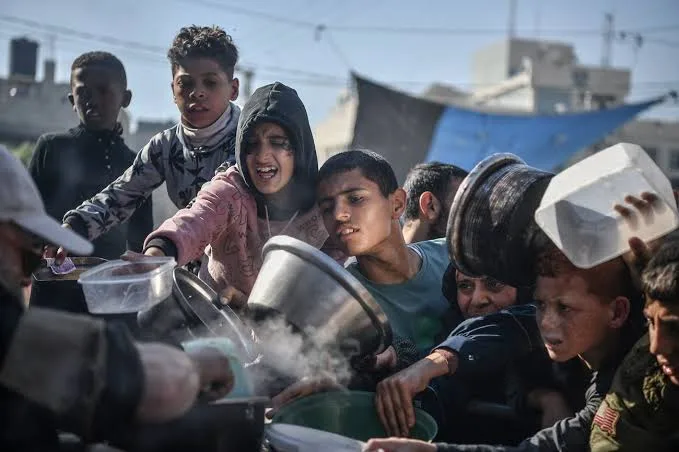GAZA STRIP – July 14, 2025
Gaza is teetering on the brink of a catastrophic humanitarian collapse, as a severe and ongoing fuel shortage threatens to paralyze critical life-saving operations and place the lives of 2.1 million people at immediate risk. United Nations agencies and numerous humanitarian organizations have issued urgent appeals, warning that without an immediate and consistent influx of fuel, the entire aid response in the Strip could grind to a complete halt.
For nearly four months, since March 2, 2025, the entry of fuel into Gaza has been severely restricted, with only a “small fraction” of what is needed entering this past week after 130 days of total restriction. This near-total blockade on a vital resource has created a dire situation across the enclave, which is still reeling from almost two years of conflict and widespread food insecurity.

Hospitals on the Edge:
Hospitals across Gaza are in a critical state, with many facing imminent shutdown. Fuel is indispensable for powering generators that keep essential departments, such as intensive care units (ICUs), neonatal units, and operating theaters, operational.
Medical sources report that current fuel supplies are far from sufficient, forcing hospitals to implement extreme rationing. This includes shutting down entire departments and delaying or halting essential services like dialysis, which is a death sentence for kidney patients.
“Hospitals are already going dark, maternity, neonatal and intensive care units are failing, and ambulances can no longer move,” stated a joint statement issued by multiple UN agencies on Saturday, July 12.
The few remaining medical facilities are overwhelmed, with bed occupancy rates surpassing 100%, and some forced to convert standard inpatient units into makeshift ICUs, often lacking adequate infection prevention and control measures.
Water and Sanitation Crisis Looms:

The impact of the fuel shortage extends far beyond hospitals. Water production and sanitation systems, heavily reliant on fuel-powered pumps, are on the verge of collapse. Save the Children warned earlier this month that fuel shortages could cut off clean drinking water supplies to at least 44,000 children supported by their programs in a matter of days, significantly increasing the risk of waterborne illnesses such as cholera, diarrhea, and dysentery.
Eighty-nine percent of Gaza’s water and sanitation infrastructure has already been damaged or destroyed since the conflict began, leaving 90% of the population without access to safe drinking water. Without fuel, water treatment plants, desalination facilities, and sewage pumping stations cannot operate, leading to a dangerous accumulation of solid waste and sewage in the streets – a breeding ground for deadly disease outbreaks.
Aid Operations Jeopardized:
Humanitarian organizations are struggling to maintain even basic operations. Fuel is essential for transporting aid, operating bakeries that provide fresh bread, and maintaining telecommunications that are vital for coordination and for families to connect. Without adequate fuel, UN agencies warn they will be
“forced to stop their operations entirely,” effectively cutting off all essential services for the 2.1 million people in Gaza.
“Fuel is the backbone of survival in Gaza,” the UN agencies emphasized. “Without fuel, these lifelines will vanish.”
The UN Secretary-General has previously warned that “the last lifelines for survival are being cut off” due to the lack of fuel.
An Urgent Appeal:
The international community, led by the United Nations, is making an unequivocal call for the immediate and unimpeded entry of sufficient and consistent quantities of fuel into Gaza. They stress that humanitarian access, including the movement of essential supplies within Gaza and to those in need, must not be used as a bargaining chip in ongoing negotiations.
As the crisis deepens with each passing day, the fear is that the fuel shortage will not only exacerbate the already desperate humanitarian situation but also trigger a complete breakdown of services, pushing Gaza’s vulnerable population to the very brink of survival. The lives of millions depend on an urgent and effective response to this critical fuel crisis.
